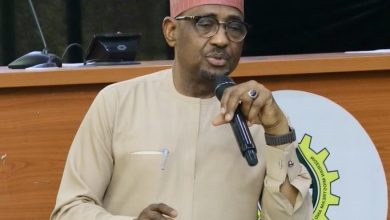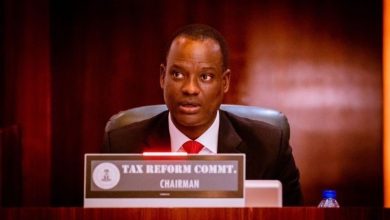Nigeria Loses $18bn Annually to Tax Evasion by Multinationals
Nigeria loses $18 billion yearly to tax evasion and profit shifting by multinational firms.
Finance Minister warns illicit flows threaten growth, urging stronger enforcement and modern digital monitoring tools.
Minister of State for Finance, Dr. Doris Uzoka-Anite, has raised alarm over Nigeria’s estimated annual loss of $18 billion due to illicit financial flows (IFFs), mainly from tax evasion and profit-shifting by multinational corporations.

Speaking on Tuesday at the National Conference on Illicit Financial Flows in Abuja, the minister described the trend as a major threat to national development and economic independence.
She explained that these huge losses stem largely from aggressive tax avoidance schemes used by multinational companies operating in Nigeria. Many of these strategies, she said, are hidden under legal or grey-area financial arrangements that deprive the country of much-needed funding for healthcare, education, infrastructure, and job creation.
“It is estimated that Nigeria loses $18 billion annually to IFFs due to profit shifting and aggressive tax avoidance practices by some multinational corporations transacting business in Nigeria,” Uzoka-Anite stated.
She referred to illicit financial flows as a “hydra-headed monster” that must be tackled urgently and comprehensively. While the focus of the conference was on tax-related issues, she emphasized that IFFs also include money laundering and terrorist financing.
Uzoka-Anite said President Bola Tinubu’s Renewed Hope Agenda aims to shift Nigeria’s economy away from its dependence on unstable oil revenues, focusing instead on strengthening domestic revenue through transparency and reform.
“Our reforms are aimed at building a resilient and self-reliant economy driven not by debt or aid, but by transparent, equitable and efficient revenue generation,” she said.
She also praised President Tinubu for signing four tax-related bills into law, describing the move as a major step in simplifying the tax system, closing loopholes, and building public trust. However, she stressed that effective enforcement and cooperation among institutions are critical to success.
According to the minister, the Finance Ministry has adopted a three-part strategy: modernising tax laws, improving transparency through beneficial ownership disclosures, and deploying digital tools to detect and prevent illicit flows in real time.
“No single institution can solve this challenge alone. Illicit financial flows thrive where systems are weak and coordination is absent. But they are not inevitable. They can be stopped when political will meets institutional resolve,” she added.
She applauded the Federal Inland Revenue Service (FIRS) for its adoption of modern technology to boost tax compliance and reduce leakages.
FIRS Chairman, Zacch Adedeji, also spoke at the event, warning that IFFs pose a structural threat to Nigeria’s economy. He said the country continues to lose billions of dollars to tax evasion, profit shifting, and trade misinvoicing.
He criticized multinational companies that take advantage of gaps in global tax systems to avoid paying taxes, saying such practices weaken Nigeria’s financial stability.
Adedeji highlighted the recent tax reforms signed by President Tinubu as a clear sign of government commitment to a transparent and modern tax system. He said FIRS had developed a new three-pronged strategy: encouraging voluntary compliance through taxpayer education, adopting advanced data tools, and enhancing inter-agency collaboration.
He also revealed that the agency had launched a Tax Intelligence and Automation Department to improve real-time data analysis, detect irregularities, and secure tax operations from manipulation.
Furthermore, Adedeji disclosed that Nigeria’s double taxation agreements were being reviewed, with negotiations already underway to eliminate outdated clauses that allow capital flight.
He concluded by calling for stronger enforcement, better data sharing, and coordinated action to safeguard Nigeria’s financial resources and ensure fiscal stability.



